Playing chess
Introduction
I have more in common with chess than just a passion for the game. This is the art of strategy, where each move reflects a unique combination of logic, patience and creativity. Since childhood, the chessboard has become my world, in which I have found a source of passion and endless learning. Through each game, I learned something new about myself and the world around me.
Chess is not only a game; it is a challenge that constantly encourages me to improve, analyze and think strategically. My steps on this board reflect not only the desire to win, but also a sincere love for this great art. Let's immerse ourselves together in a world where every move is an opportunity for growth and learning.
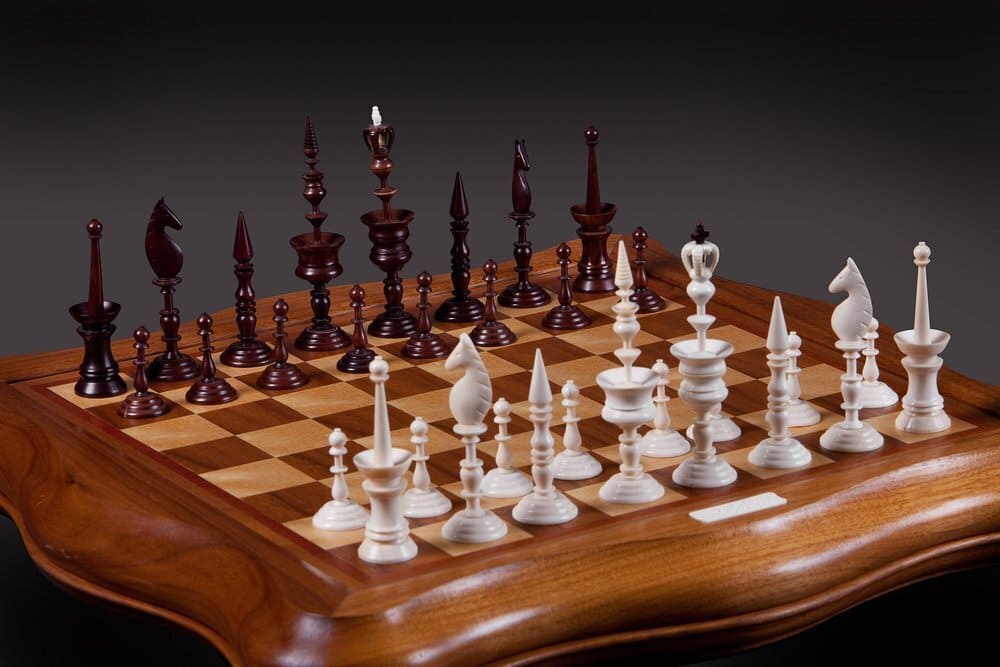
Figure 1 - Chess
My idols
Garry Kimovich Kasparov (surname at birth Weinstein?yn; rod. April 13, 1963, Baku, Azerbaijan SSR, USSR) is a Soviet and Russian chess player, the 13th world chess champion, chess writer and politician, often recognized as the greatest chess player in history. International Grandmaster (1980), Honored Master of Sports of the USSR (1985), champion of the USSR (1981, 1988), champion of Russia (2004) [1]. Eight-time winner of the World Chess Olympiads: four times as a member of the USSR team (1980, 1982, 1986, 1988) and four times as a member of the Russian team (1992, 1994, 1996, 2002). Winner of eleven chess Oscars (prizes for the best chess player of the year). Kasparov was the sole head of the FIDE rating from 1985 to 2006 with two short breaks: in 1994 he was excluded from the rating by a decision of FIDE adopted in 1993, and in January 1996 Kasparov had the same rating as Vladimir Kramnik [1]. From the first days of my acquaintance with chess, the name Garry Kasparov sounded to me as a symbol of an uncompromising attacking game and a unique strategy. His unconventional approach to the games, uncompromising dominance on the board and an unsurpassed sense of tact and plan made his game a true source of inspiration.
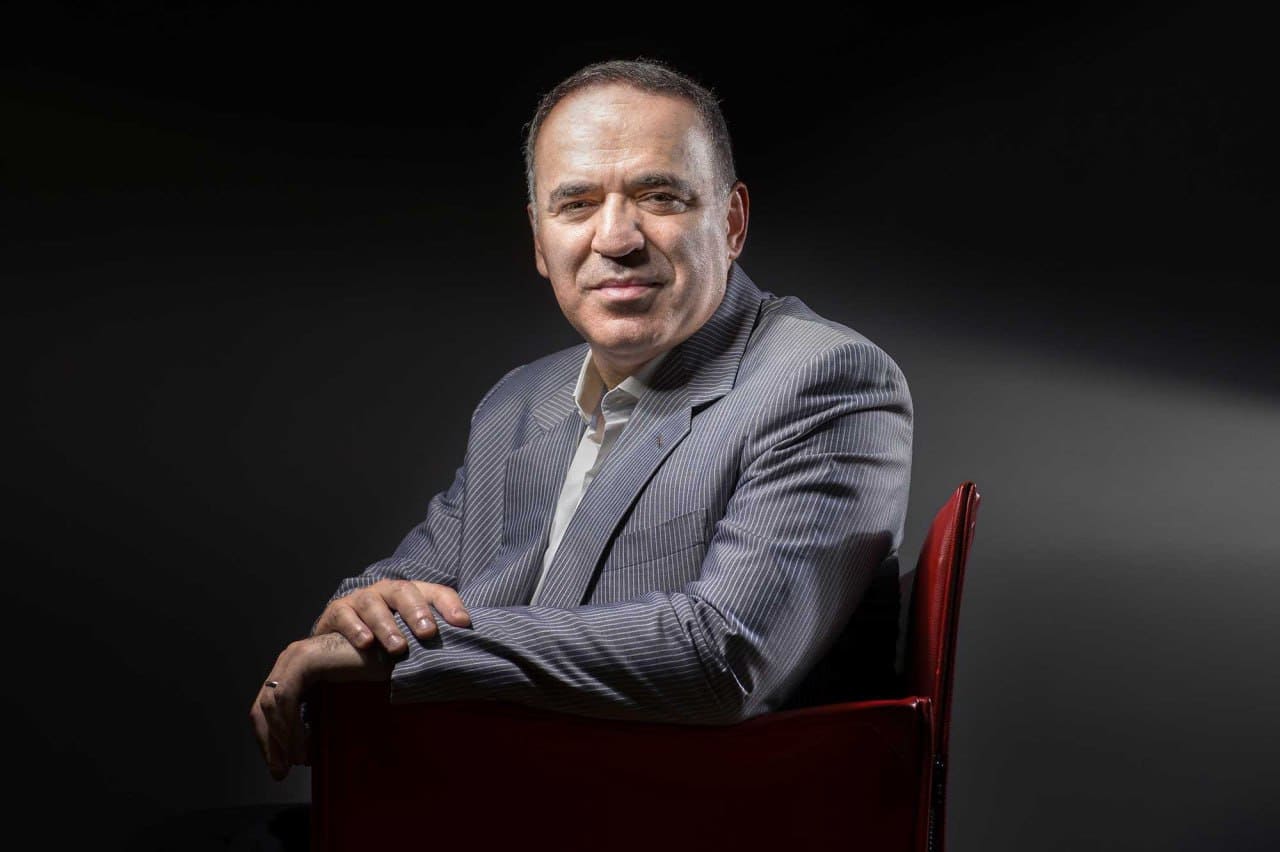
Figure 2 - Garry Kasparov
Sven Magnus Een Carlsen (norv. Sven Magnus Oen Carlsen; b. November 30, 1990, Tensberg, Vestfall province, Norway) is a Norwegian chess player, the 16th World chess champion (2013-2023) [2]. The winner of the 2023 World Cup. World chess champion in three categories: from 2013 to 2023 — world champion in classical chess; in 2014-2016, 2019, 2022 — world champion in rapid; in 2014-2015, 2017-2019, 2022 — world champion in blitz. One of the youngest grandmasters in the world, he became one on April 26, 2004 at the age of 13 years, 4 months, 27 days (at that time he was second in the list of the youngest grandmasters in the world)[2]. Watching Magnus Carlsen has always brought me indescribable pleasure and inspiration. His ability to find unique moves, intuition, and ability to read the board while playing make me wonder and strive for new heights in my own game.
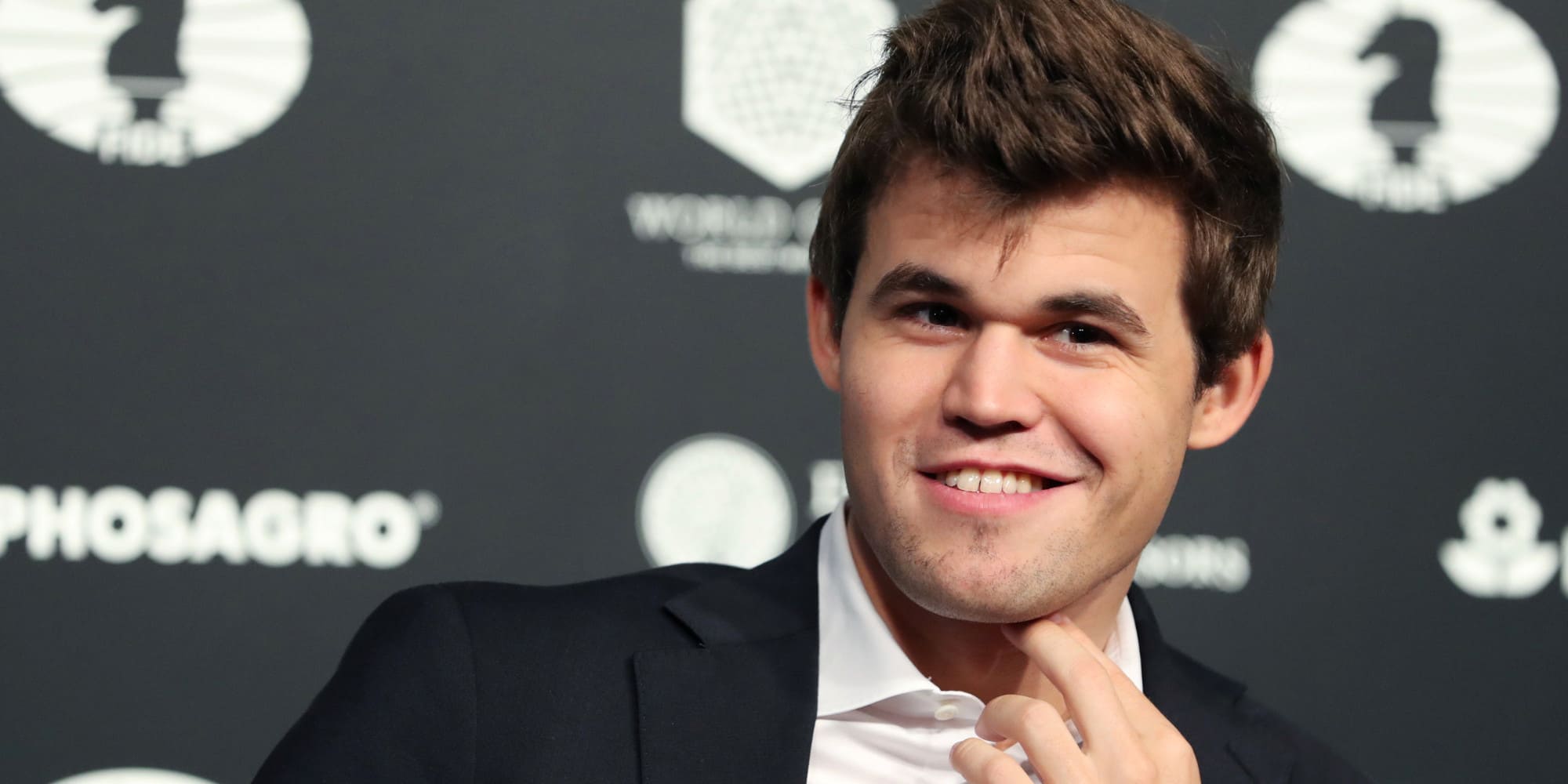
Figure 3 - Magnus Carlsen
These two great chess players have become for me not just examples of mastery in the game, but also sources of inspiration to improve and perfect my playing style. Studying their games, strategies and thinking helps me develop as a chess player and as a person.
Anatoly Evgenievich Karpov (born May 23, 1951, Zlatoust, Chelyabinsk region) is a Soviet and Russian chess player and politician, the twelfth world chess champion (1975-1985), international grandmaster (1970), Honored Master of Sports of the USSR (1974). FIDE referee, Senior FIDE coach (2009) [3]. Three-time world men's chess champion (1975, 1978, 1981), four-time FIDE World champion (1992, 1993, 1996, 1998), two-time world champion in the USSR national team (1985 and 1989), six-time winner of chess Olympiads in the USSR national team (1972, 1974, 1980, 1982, 1986, 1988), three-time champion of the USSR (1976, 1983, 1988), champion of the RSFSR (1970). Winner of nine chess Oscars" (1973, 1974, 1975, 1976, 1977, 1979, 1980, 1981, 1984). Honorary citizen of Zlatoust (1979) and Tula (1998). Karpov is a well—known philatelist [3].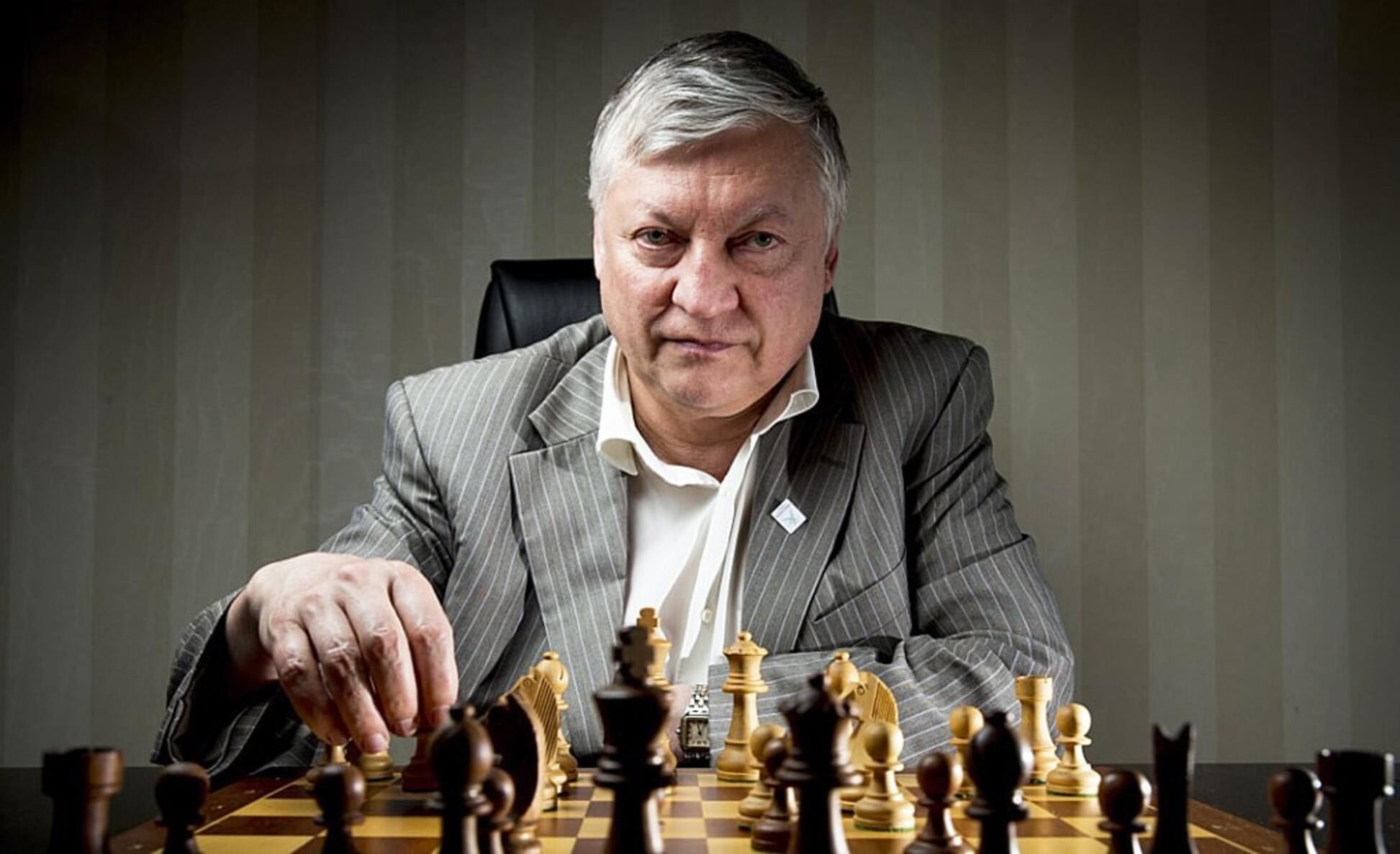
Figure 4 - Anatoly Karpov
Mikhail Moiseevich Botvinnik (August 4, 1911, Kuokkala, Vyborg province, Grand Duchy of Finland, Russian Empire — May 5, 1995, Moscow, Russia) was a Soviet chess player, the 6th in the history of chess and the 1st Soviet world champion (1948-1957, 1958-1960, 1961-1963) [4]. Grandmaster of the USSR (1935), international grandmaster (1950) and arbiter of chess composition (1956); Honored Master of Sports of the USSR (1945), 6-time champion of the USSR (1931, 1933, 1939, 1944, 1945, 1952), the absolute champion of the USSR (1941). Champion of Moscow (1943/44). Six-time winner of Chess Olympiads as a member of the USSR team (two-time winner in the individual competition). The "patriarch" of the Soviet chess school. Chairman of the All—Union Chess Section (1938-1939) and the Board of the USSR-Netherlands Society (since 1960). Honored Worker of Culture of the RSFSR (1971), Honored Worker of Science and Technology of the RSFSR (1991). Doctor of Technical Sciences, Professor. Excellent student of physical culture (1948) [4].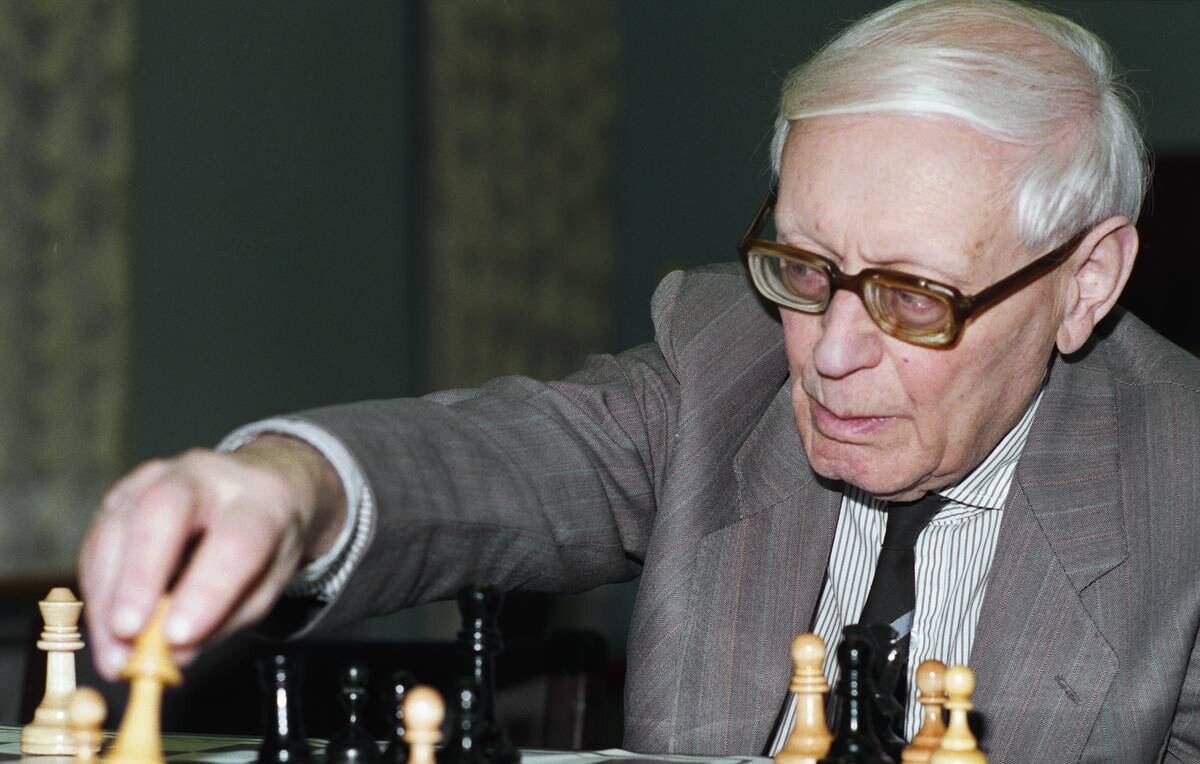
Figure 5 - Mikhail Botvinnik
Yan Alexandrovich Nepomnyashchy (born July 14, 1990, Bryansk) is a Russian chess player, grandmaster (2007) [5]. The strongest chess player in Russia, vice-world champion (2021, 2023), World Champion in rapid chess (2022). The 2010 European Champion. Two-time champion of Russia (2010 and 2020), two-time winner of the World Team Championship as part of the Russian team (2013 and 2019), along with Smyslov is one of two chess players in history who won the candidates tournaments twice in a row (2020 and 2022). Since December 2021, the manager of Nepomnyashchy has been Zoya Viktorovna Arnatskaya. In English-speaking society, there is a nickname "Nepo" [5].
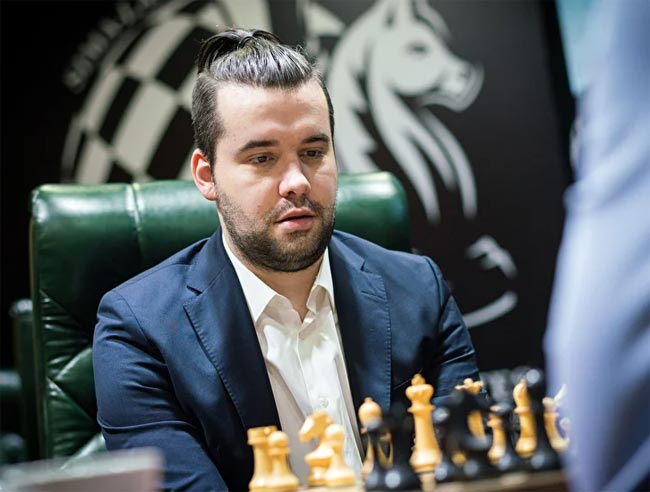
Figure 6 - Jan Nepomnyashchy
Alexander Alexandrovich Alekhine (common spelling and pronunciation of "Alekhine" is erroneous; October 19 (31), 1892, Moscow — March 24, 1946, Estoril, Portugal) was a Russian and French chess player who played for the Russian Empire, Soviet Russia and France, the fourth world chess champion [6]. Alekhine became one of the strongest chess players in the world before the First World War, taking third place at the St. Petersburg tournament in 1914, in 1920 he became the first champion of the RSFSR, and in 1921 he left Russia and moved permanently to France, of which he became a citizen in 1925. In 1927, Alekhine won the world championship match against the considered invincible Jose Raul Capablanca, who became world champion in 1921, and then for several years Alekhine dominated the competition, winning the largest tournaments of his time with a great advantage over his rivals. Twice, in 1929 and 1934, Alekhine defended the title in matches against Efim Bogolyubov, in 1935 he lost the match to future FIDE President Max Euwe, but two years later he won a rematch and held the title of world champion until his death in the spring of 1946. Alekhine is the only chess player who died while being the current world champion [6].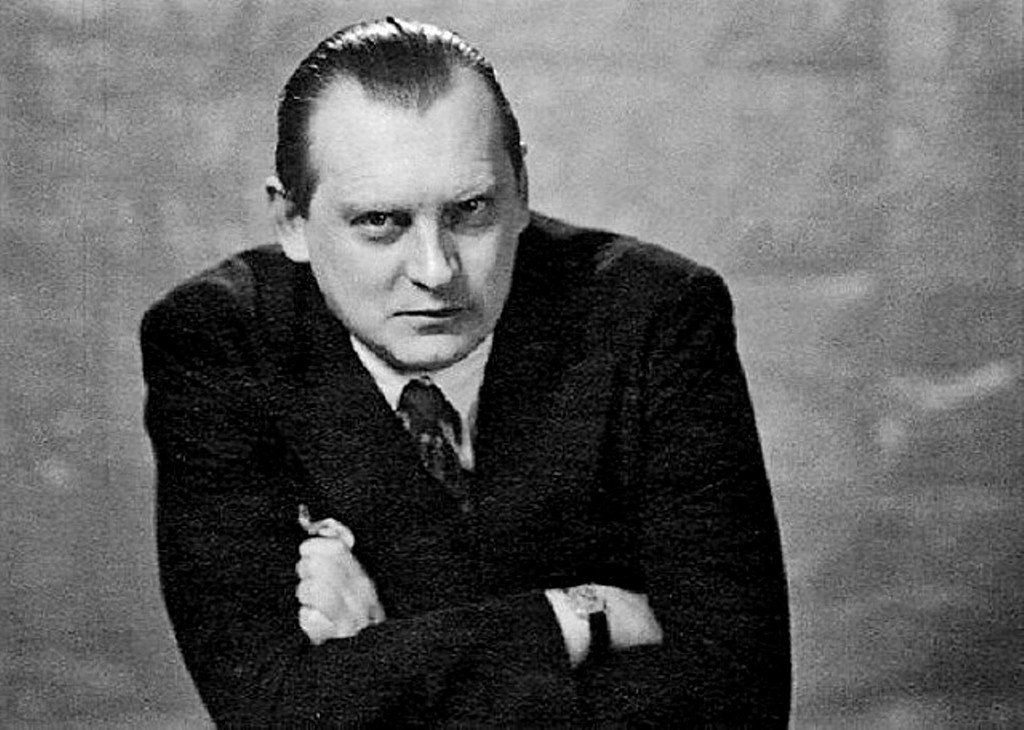
Figure 7 - Alexander Alekhine
Childhood and first steps
My love for chess began in childhood, when I first saw the shiny pieces on the board that were fighting for every square of the field. Perhaps it was a chance acquaintance, but the magic of those 64 cells captured my attention and embedded itself in my life forever.
My first chess moves were clumsy but exciting. I was learning the rules, learning the names of the pieces, trying to memorize their moves. Each game opened up new horizons, taught me to make mistakes, and then learn from my mistakes.
I remember spending hours at the blackboard, learning game after game, reading books and studying various discoveries. It was the time when I began to realize that chess is not only a game, but also a unique opportunity to learn about myself and develop my mind.
My parents supported my passion for this game by giving me the opportunity to play and learn. Playing with friends and mentors, I began to immerse myself in the world of strategy, tactics and inexhaustible combinations.
Training and training
My desire to improve in chess has led me to constant learning and systematic training. I have always believed that real progress comes through hard work and a tireless desire to learn more.
I have learned the knowledge and skills necessary to play chess in various ways. Reading books about classical games and the theory of discovery immersed me in the world of strategy and tactics. Discussing games with experienced chess players helped me understand the intricacies of the game and develop my own style.
Daily training was the key to improving my skills. Solving tactical problems, studying endgames, and analyzing my own games helped me identify weaknesses and find ways to improve them. Such systematic training allowed me to become stronger every day.
The game of the game was no less important. Meetings with opponents of different levels helped me understand different styles of play, taught me to think over moves and make informed decisions even in difficult situations.
Learning and training have become an integral part of my life, not only improving my chess game, but also developing the ability of analysis, patience and self-discipline.
The philosophy of chess
Chess is not just a game; it is a mirror of life, where every move reflects strategic thinking, decision-making and the ability to plan several steps ahead. At the board, we are in a kind of microcosm where every decision can affect the course of the game.This game has taught me the importance of predicting the consequences of my actions and planning. In chess, as in life, it is necessary to see the big picture, to take into account not only your own actions, but also the actions of the opponent.
Chess teaches you to make decisions in conditions of limited information, analyze situations and adapt to new circumstances. The ability to remain calm and clear-minded in critical situations is an integral part of the game, as well as life in general.
Each game of chess is a unique experience that brings with it lessons and conclusions. Victories have taught me to enjoy achievements and keep moving forward, and defeats have taught me the value of the lessons they bring.
The philosophy of chess extends beyond the board and becomes part of my daily thinking. It permeates decision-making, planning and the pursuit of continuous improvement, making my journey not only a game, but also a philosophical journey.Literature
- Kasparov, Harry Kimovich [Electronic resource] – Access mode: https://ru.wikipedia.org/wiki/Kasparov,_garry_kimovich
- Carlsen, Magnus [Electronic resource] – Access mode: https://ru.wikipedia.org/wiki/Carlsen,Magnus
- Karpov, Anatoly Evgenievich [Electronic resource] – Access mode: https://ru.wikipedia.org/wiki/Karpov,Anatol Evgenievich
- Botvinnik, Mikhail Moiseevich [Electronic resource] – Access mode: https://ru.wikipedia.org/wiki/Botvinnik,Mikhail_Moiseevich
- Nepomnyashchy, Yan Alexandrovich [Electronic resource] – Access mode: https://ru.wikipedia.org/wiki/Nepomnyashchy,_yan_alexandrovich
- Alyokhin, Alexander Alexandrovich [Electronic resource] – Access mode: https://ru.wikipedia.org/wiki/Alekhine,_alexandr_alexandrovich
